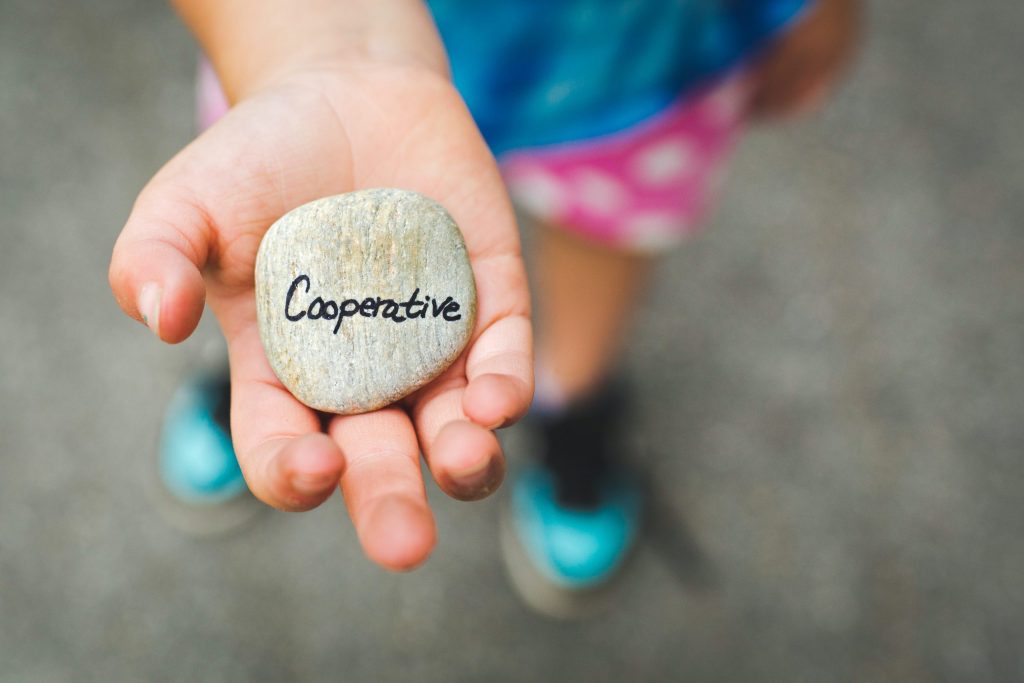By Frédéric Dufays & Adrien Billiet

Cooperative enterprises are unique, but often overlooked models of business. Many of them, however, seem to be remarkably resilient during times of crises (Cheney, Santa Cruz, Peredo, & Nazareno, 2014). They provide services or goods for their members, who also own and democratically control the cooperative. In contrast to capitalist enterprises, where managers usually maximize shareholders’ financial interests, cooperative enterprises need to optimize the transaction-relation with members.
For instance, a worker cooperative cares for valuable and long-term employment for its worker-members. A producer cooperative strives for fair and long-term contracts with its supplier-members. A consumer cooperative focusses on an excellent price-quality ratio for goods or services for its client-members. Even though narrowly defined, we call this non-financial objective a social objective, since the primary type of value that is derived by cooperative members is not of a financial nature but rather utility.
The focus on a sustainable transaction relation, rather than on shareholder dividends, provides a very different dynamic when a crisis strikes, as seen from the cooperatives’ responses to the pandemic. Where conventional companies are more inclined to cut on workforce whenever capital is in danger, worker cooperatives do the opposite by distributing profits from previous years among its workers. This is especially visible for the large Spanish cooperative Mondragon, which has always dealt with crises in this manner. Given the decreasing demand of dairy products with all the restaurants closed, conventional dairy companies cancel farmer contracts, whereas producer cooperatives, such as dairy cooperatives Milcobel (Belgium) and Fonterra (New-Zealand), continue to buy the milk of their farmer-members. Also, while conventional insurance companies pay exceptionally high dividends to their shareholders because insurance premiums are being paid despite historically low records of accidents with the absence of traffic, several insurance (and thus consumer) cooperatives or mutuals, such as MAIF (France), paid back insurance premiums to their members in order to provide the best possible price-quality ratio. Finally, as value-based organizations, several cooperatives entered into new collaboration partnerships to benefit society at large: production and distribution of masks to fragile people, transfer of profits generated by the crisis-related increase in activity of food cooperatives to cooperative hospitals (Italy), etc.
Whether taking advantage of a crisis or not, cooperative enterprises are designed to serve the needs of their members. When individual members are sustained in their job (worker cooperatives), their livelihoods and families, and hence communities, bear the ultimate fruits. When producers are sustained in their operations (producer cooperatives), their workers and families also bear the fruits. And last, when consumers are granted a fine price-quality ratio (consumer cooperatives), their lives are more valuable.
Cases from around the world, both in economic sectors that are strongly hit and in sectors that are highly mobilized by the crisis, illustrate how communities can continue to function, without the disruptive effect of capitalist reactions to crises, i.e. saving on capital and cutting on workforce, contracts or price-quality ratio. Even though they are no magical passe-partout, cooperatives can be a source of inspiration for constructing a post-corona society that puts the economy at the service of humankind. Especially the cooperative’s curious focus on utility makes it not only a realistic model, but also a highly desirable one in times when reform of the economy is not a luxury, but a necessity.
Reference:
Cheney, G., Santa Cruz, I., Peredo, A. M., & Nazareno, E. 2014. Worker cooperatives as an organizational alternative: Challenges, achievements and promise in business governance and ownership. Organization, 21(5): 591-603.
